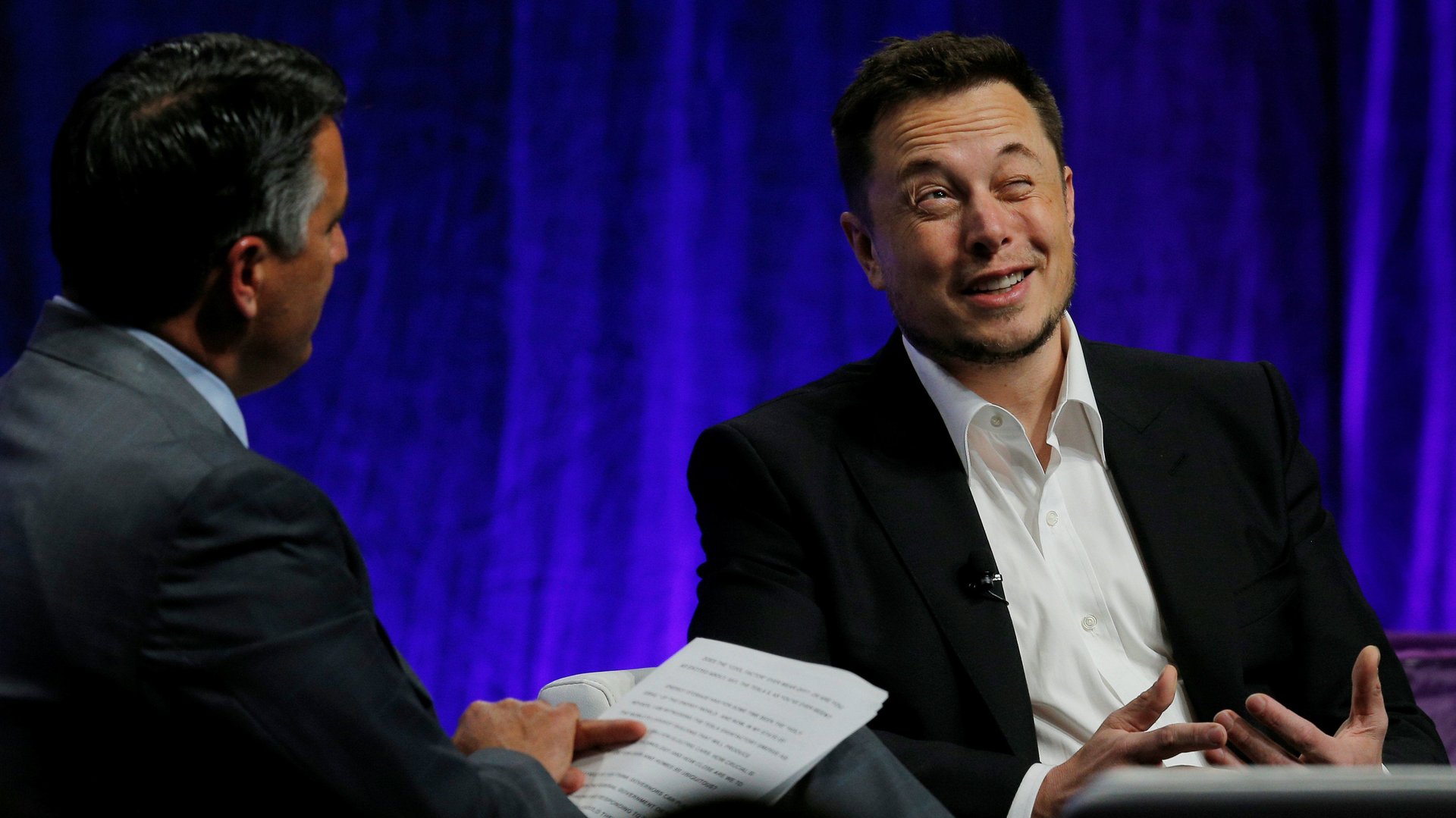Tesla’s settlement with the SEC means a lot more supervision for Elon Musk
Earlier this week a judge approved Tesla’s settlement agreement with the US Securities and Exchange Commission (SEC). In a filing with regulators yesterday (Oct. 17), the electric-car maker agreed to a series of demands that will allow it to move past CEO Elon Musk’s role in allegedly misleading investors with his suggestion on Twitter that he had secured funding to take the company private.


Earlier this week a judge approved Tesla’s settlement agreement with the US Securities and Exchange Commission (SEC). In a filing with regulators yesterday (Oct. 17), the electric-car maker agreed to a series of demands that will allow it to move past CEO Elon Musk’s role in allegedly misleading investors with his suggestion on Twitter that he had secured funding to take the company private.
The saga ends with far more supervision over Musk. After the impulsive executive backed out of a settlement (paywall) in late September, just before the agency prepared to announce the terms, the SEC fired back by suing to ban Musk from serving as an officer of any public company. That would have been potentially disastrous for Tesla and Musk.
The new agreement, in which Musk neither admits nor denies the SEC’s allegations, forces the carmaker and its founder to accept more rigorous oversight.
The first term is a (largely symbolic) $40 million civil fine split evenly between Tesla and its founder (Musk holds approximately $8 billion in shares in Tesla). But the SEC’s real goal appears to be overhauling Tesla’s governance structure to better protect shareholders from Musk’s whims. Within 90 days, the document states, two new “independent” directors will be appointed to a corporate board now stacked with Musk allies, including friend Steve Jurvetson, cousin Kimbal Musk—who founded Solar City, acquired by Tesla in 2016—and Brad Buss, Solar City’s former chief financial officer.
Musk will step down as board chairman for at least three years, and several new layers of supervision will be imposed. An SEC-approved board committee will enforce the terms of the settlement, address conflicts of interest within Tesla’s management ranks, and oversee public statements by Tesla executives. A newly appointed securities lawyer will ensure Tesla management complies with securities laws, as well as corporate policies.
The provision most directly aimed at Musk is the SEC’s requirement that Tesla “enhance controls with respect to Elon’s public communications regarding Tesla and to pre-approve any such written communications that contain, or reasonably could contain, information material to Tesla or its stockholders.”
It’s unclear if any of this will rein in Musk’s impulsiveness, or his Twitter habit. Perhaps to press the point, Musk landed just one more jab at the SEC on Oct. 4 before the settlement was finalized.